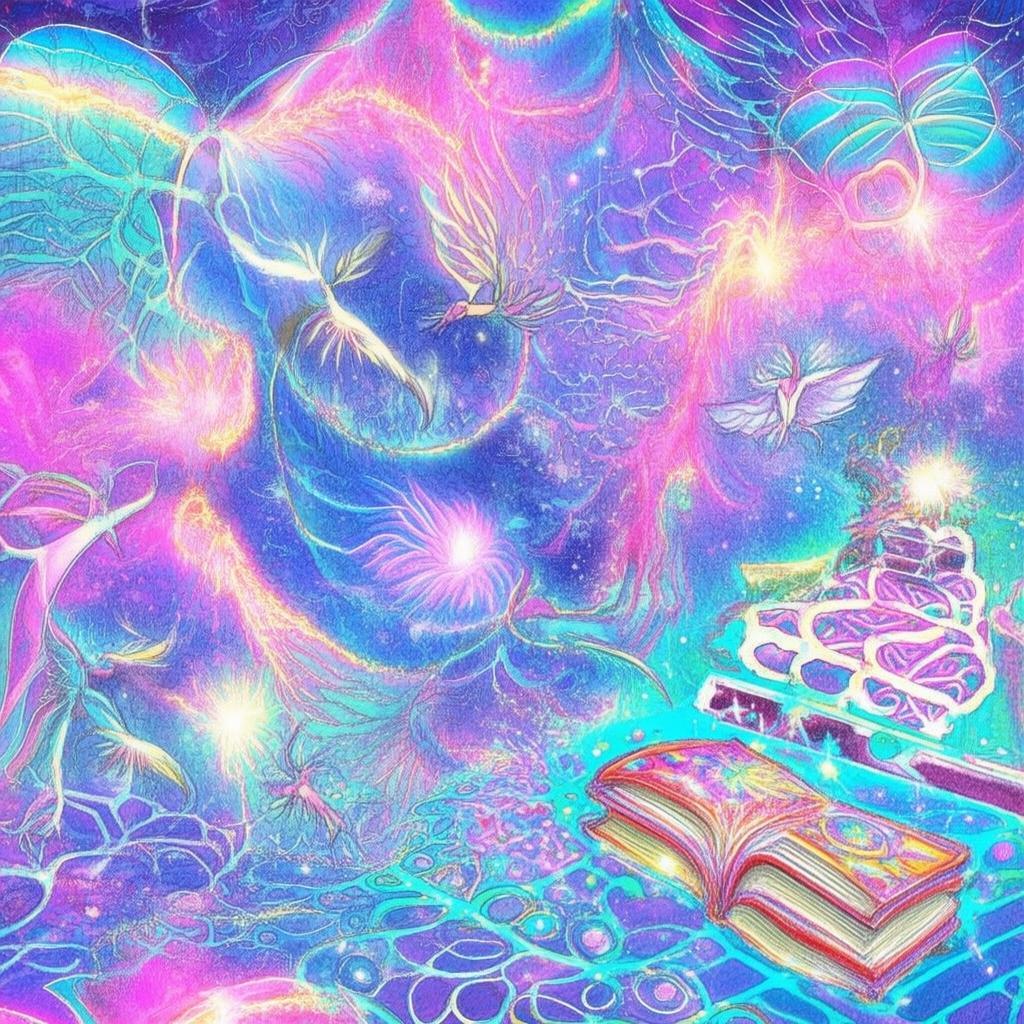The Monk's Lament: Echoes of Samsara
In the ancient city of Varanasi, where the sacred Ganges river flows and the veil between worlds is thin, there walked a monk known only as Quick-Change. His robes were a canvas of shifting hues, reflecting the ever-changing nature of his life. Quick-Change was no ordinary monk; he was a wanderer of the mind, a seeker of the truth hidden within the labyrinth of Samsara.
The monk's journey through the cycles of birth, death, and rebirth was one of constant transformation. He believed that enlightenment was the ultimate goal, the freedom from the endless cycle of existence. Quick-Change had been a soldier, a merchant, a king, and a beggar in his many lifetimes, but none had brought him the peace he so desperately craved.
One evening, as he meditated beside the river, Quick-Change was interrupted by a voice as cold as the waters he bathed in. "Monk, you seek enlightenment, but you are yet to understand the true nature of your past."
The monk opened his eyes to find a figure cloaked in shadows standing before him. The figure spoke again, "Your past is not a thing to be forgotten, but a tapestry that must be woven into the fabric of your present and future."

Quick-Change, intrigued yet wary, asked, "What do you mean?"
The figure stepped forward, revealing a face etched with the lines of countless lives. "I am a manifestation of your past. I am the echoes of your Samsara, the consequences of your actions. You cannot escape your past, for it is intertwined with the present."
The monk's mind raced. "But how can I find enlightenment if I am shackled by the past?"
The figure's eyes glowed with an otherworldly light. "Enlightenment is not about escaping the past; it is about understanding it, embracing it, and transcending it. Only then can you truly free yourself."
As the monk delved deeper into this conversation, he realized that his past was not a series of regrets or mistakes, but a tapestry of experiences that had shaped him into the person he was. Each life, each death, had brought him closer to understanding the true nature of existence.
As the night wore on, Quick-Change began to see the world differently. He understood that his past was not a burden, but a gift. It was the key to his enlightenment, the tool that would unlock the door to his true self.
The following days were a whirlwind of revelation. Quick-Change journeyed through the memories of his past lives, facing the consequences of his actions, both good and bad. He met with the kings he had ruled over, the soldiers he had fought beside, and the beggars he had once been. In each encounter, he found a piece of himself that he had long forgotten.
As he reached the end of his journey, Quick-Change found himself standing in the heart of the city, where he had once been a king. He looked up at the ancient palace that had been his home, and he realized that it was not just a building, but a symbol of his past.
"Monk," the figure said, appearing once more, "you have faced the echoes of your past. Now, face the present."
Quick-Change took a deep breath and looked around. The city was alive with the sounds of life—children laughing, vendors hawking their wares, monks walking in silent contemplation. He saw the river, flowing with the same purpose it had for millennia, carrying away the sins and joys of those who bathed in its waters.
He understood then that enlightenment was not a destination, but a continuous journey. It was about being present in the moment, embracing the past, and looking forward to the future with clarity and peace.
Quick-Change bowed to the figure, who began to fade into the night. "Thank you for your guidance," he whispered.
The monk turned back to the river, his robes shifting to a serene white. He took a step forward, feeling the weight of his past lift from his shoulders. He had found his enlightenment, not in the quietude of a remote temple, but in the heart of the world.
And as he walked away from the river, Quick-Change knew that his journey through Samsara was far from over. He would continue to transform, to learn, to grow, and to seek the truth that lay beyond the veil of existence. For the monk had realized that enlightenment was not the end of the journey, but the beginning of a new cycle, one that would lead him to a deeper understanding of life and death.
In the end, Quick-Change found that his quest for enlightenment was not about escaping the wheel of Samsara, but about embracing it, understanding it, and transcending it. And in that understanding, he found peace.
✨ Original Statement ✨
All articles published on this website (including but not limited to text, images, videos, and other content) are original or authorized for reposting and are protected by relevant laws. Without the explicit written permission of this website, no individual or organization may copy, modify, repost, or use the content for commercial purposes.
If you need to quote or cooperate, please contact this site for authorization. We reserve the right to pursue legal responsibility for any unauthorized use.
Hereby declared.









